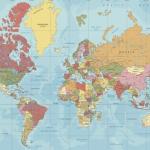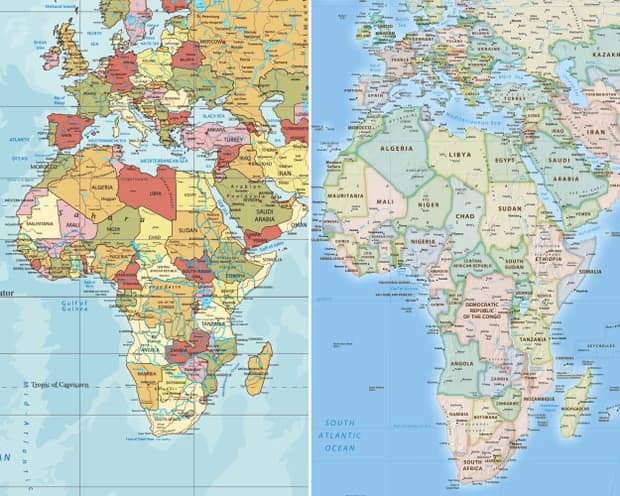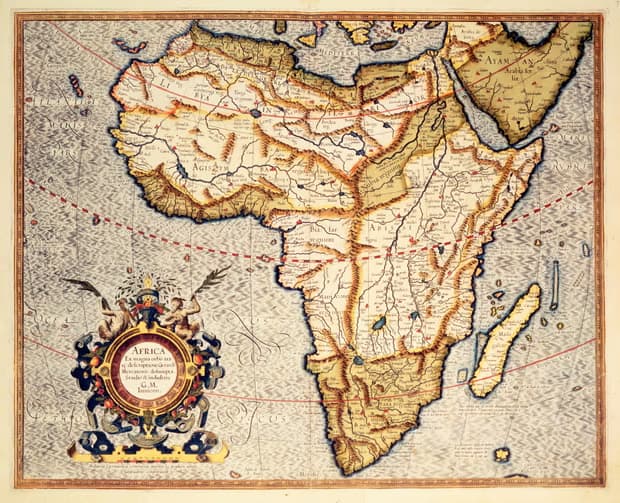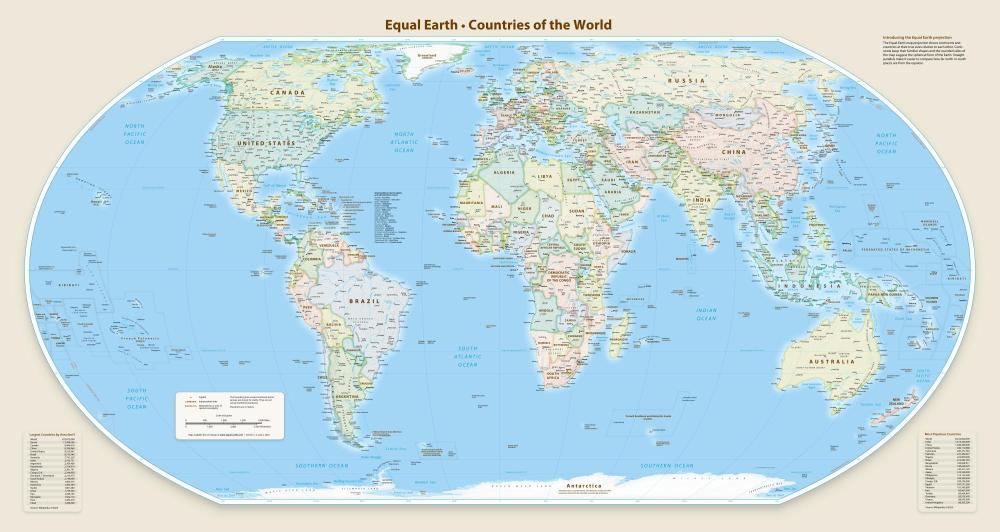African Union Joins Calls To End Use of Mercator Map That Shrinks Continent’s Size

The African Union has backed a campaign to end the use by governments and international organisations of the 16th-century Mercator map of the world in favour of one that more accurately displays Africa’s size.

Mercator map showing Africa (left), and a map from the Equal Earth campaign (right). Composite: equal-earth.com, Getty Images
Created by the cartographer Gerardus Mercator for navigation, the projection distorts continent sizes, enlarging areas near the poles like North America and Greenland while shrinking Africa and South America. “It might seem to be just a map, but in reality, it is not,” the African Union Commission deputy chair, Selma Malika Haddadi, told Reuters, saying the Mercator fostered a false impression that Africa was “marginal”, despite being the world’s second-largest continent by area, with more than 1 billion people. The union has 55 member states.

A 16th-century map of Africa from Mercator’s atlas. Photograph: Royal Geographical Society/Getty Images
Such stereotypes influence media, education and policy, she said.
Criticism of the Mercator map is not new, but the Correct the Map campaign led by the advocacy groups Africa No Filter and Speak Up Africa has revived the debate, urging organisations to adopt the 2018 Equal Earth projection, which tries to reflect countries’ true sizes.
“The current size of the map of Africa is wrong,” said Moky Makura, the executive director of Africa No Filter. “It’s the world’s longest misinformation and disinformation campaign, and it just simply has to stop.”
Fara Ndiaye, a co-founder of Speak Up Africa, said the Mercator affected Africans’ identity and pride, especially children who might encounter it early in school.
“We’re actively working on promoting a curriculum where the Equal Earth projection will be the main standard across all classrooms,” Ndiaye said, adding she hoped it would also be the one used by global institutions, including Africa-based ones. Haddadi said the AU endorsed the campaign, adding it aligned with its goal of “reclaiming Africa’s rightful place on the global stage” amid growing calls for reparations for colonialism and slavery.
The AU will advocate for wider map adoption and discuss collective actions with member states, Haddadi added.
The Mercator projection is still widely used, including by schools and tech companies. Google Maps switched from Mercator on desktop to a 3D globe view in 2018, though users can still switch back to the Mercator if they prefer.

The Equal Earth map advocated by the Correct the Map campaign. Photograph: equal-earth.com
On the mobile app, however, the Mercator projection remains the default.
Correct the Map wants organisations such as the World Bank and the UN to adopt the Equal Earth map. A World Bank spokesperson said it already used the Winkel tripel projection or Equal Earth for static maps and was phasing out Mercator on web maps.
The campaign said it had sent a request to the UN geospatial body, UN-GGIM. A UN spokesperson said that once received it must be reviewed and approved by a committee of experts.
Other regions are backing the AU’s efforts. Dorbrene O’Marde, the vice-chair of the Caribbean Community (Caricom) Reparations Commission, endorsed Equal Earth as a rejection of the Mercator map’s “ideology of power and dominance”.
At this dangerous moment for dissent
I hope you appreciated this article. Before you close this tab, I wanted to ask if you could support the Guardian at this crucial time for journalism in the US.
When the military is deployed to quell overwhelmingly peaceful protest, when elected officials of the opposing party are arrested or handcuffed, when student activists are jailed and deported, and when a wide range of civic institutions – non-profits, law firms, universities, news outlets, the arts, the civil service, scientists – are targeted and penalized by the federal government, it’s hard to avoid the conclusion that our core freedoms are disappearing before our eyes – and democracy itself is slipping away.
In any country on the cusp of authoritarianism, the role of the press as an engine of scrutiny, truth and accountability becomes increasingly critical. At the Guardian, we see it as our job not only to report on the suppression of dissenting voices, but to make sure those voices are heard.
Not every news organization sees its mission this way – indeed, some have been pressured by their corporate and billionaire owners to avoid antagonizing this government. I am thankful the Guardian is different.
Our only financial obligation is to fund independent journalism in perpetuity: we have no ultrarich owner, no shareholders, no corporate bosses with the power to overrule or influence our editorial decisions. Reader support is what guarantees our survival and safeguards our independence – and every cent we receive is reinvested in our work.
The Guardian’s global perspective helps contextualize and illuminate what we are experiencing in this country. That doesn’t mean we have a single viewpoint, but we do have a shared set of values. Humanity, curiosity and honesty guide us, and our work is rooted in solidarity with ordinary people and hope for our shared future.
It has never been more urgent, or more perilous, to pursue reporting in the US that holds power to account and counters the spread of misinformation – and at the Guardian we make our journalism free and accessible to all. Can you spare just 37 seconds now to support our work and protect the free press?
We value whatever you can spare, but a recurring contribution makes the most impact, enabling greater investment in our most crucial, fearless journalism. As our thanks to you, we can offer you some great benefits – including seeing far fewer fundraising messages like this. We’ve made it very quick to set up, so we hope you’ll consider it. Thank you.
Betsy Reed
Editor, Guardian US
